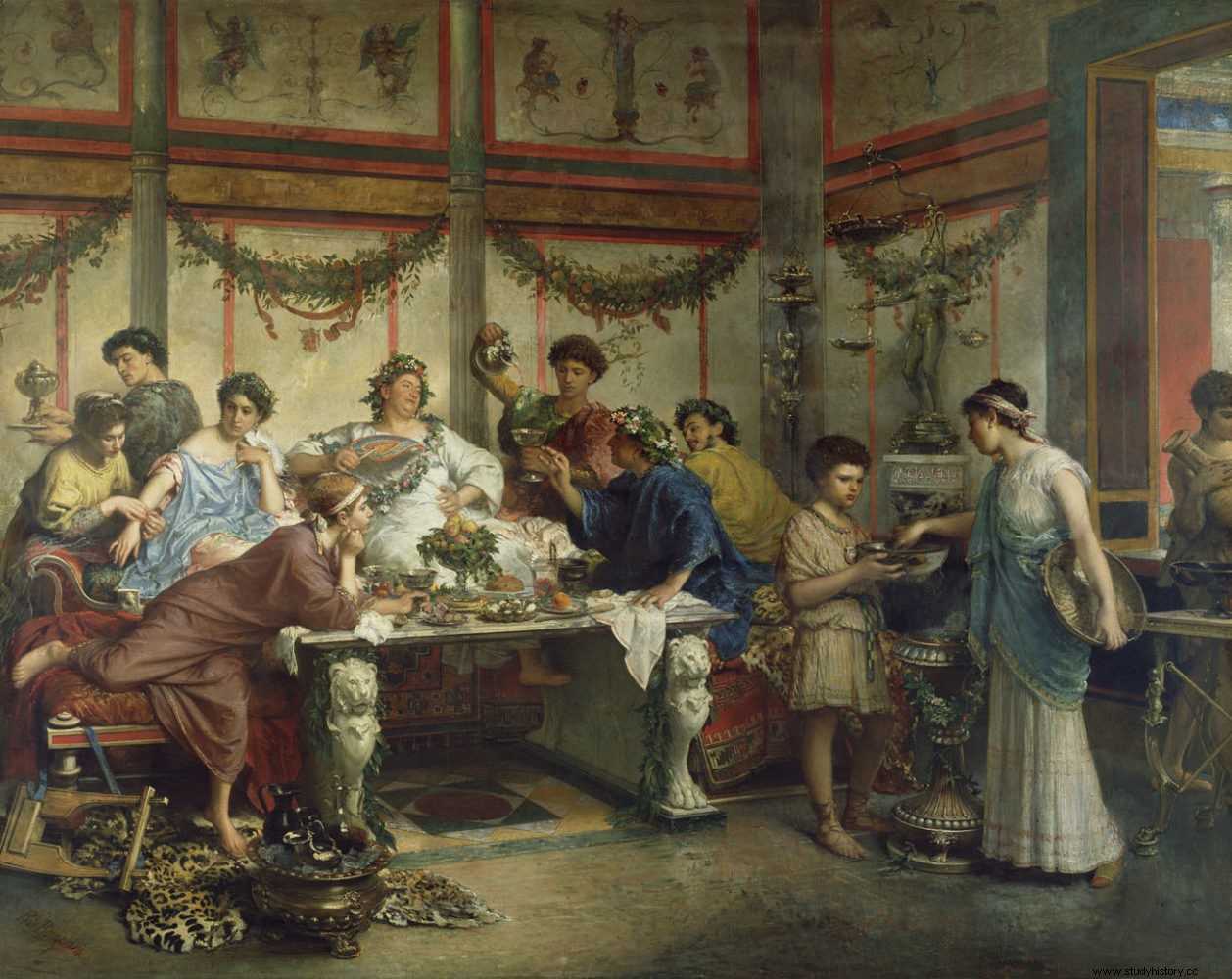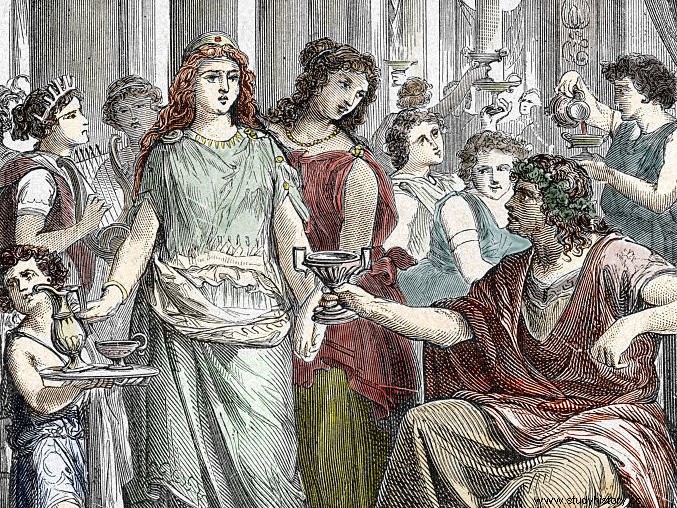If there was a ritual associated with the consumption of wine in Greece, it was the symposium. It was the time for drinking and chatting among the guests - only men - after finishing the main meal (deipnon ). At the end of the meal, the servants cleared the tables, decorated the guests with ivy crowns, poured some perfumes on them, began to circulate cups that were filled in the krater (containers or vessels made of clay where water and wine were mixed). ), a referee was chosen from the talks and the hetairas enlivened the party with their dances and music. The toasts and talks that followed carried on merrily into the night. In the words of the Greek historian and philosopher Xenophon…
in the symposia sorrows are numb and the loving instinct is awakened.

And if the Greeks had the symposium, the Romans had the convivium , a kind of banquet for the delight of the senses during which the host endeavored to impress his guests. And even though they ate and drank like there was no tomorrow, it's an urban legend that there was such a place, called vomitorium , where in order to continue swallowing and drinking they caused themselves to vomit. vomiting (plural of vomitorum) were the doors or openings of the amphitheaters, circuses or theaters of ancient Rome to enter and exit the stands. In the Coliseum there were 76 vomitoria that allowed 50,000 people to be evacuated in just 15 minutes. The reality is that several authors included these stories to entertain their readers and, above all, to describe the excesses of emperors and possible people who, guided by gluttony, pleasure and the inability to maintain control, could provoke themselves. the vomiting. Vomiting was a medical treatment for excesses, rather than a common practice, but if you take an idea from here, a detail from there, and macerate it with imagination... in the end, the vomitorium becomes a room where the Romans made themselves vomit.
Despite the many similarities between the two rituals, in the Greek only men participated, the women were simply “entertainers”, and everyone drank the wine from the same krater. On the contrary, in the Roman one, men and women participated indistinctly and the wine that each of the participants drank depended on their social status. The convivium was a reflection of Roman society, based on the system of patrons and clients - a client was a commoner who was associated with a benefactor patron. Pliny the Elder recounts a banquet in which first-class wine was served to the host, his family and the rest of his "equals", second-class to their clients and quarrelsome to the freedmen (former slaves). In fact, Mark Antony the Orator , grandfather of General Marco Antonio, a member of the Second Triumvirate along with César Augusto and Lepido, literally lost his mind as a result of this social distinction when it came to drinking wine.

Marco Antonio was a Roman politician of the republican stage who became consul in 99 BC. During the civil war between Lucius Cornelius Sulla and Gaius Marius, leaders of the two factions that controlled the Senate, optimates and popular respectively, the Speaker supported Sulla. Sulla marched on Rome with his legions, defeated Marius and took control. Believing that he had everything tied up, he went to Greece to fight against Mithridates of Pontus, a moment that the popular took advantage of to regain power with the return of Mario and his veterans from North Africa. As Sulla had done, Mario and his men began a bloody repression against Sulla's supporters. And one of those mentioned was our protagonist, Marco Antonio. During the persecution he took refuge in the house of one of his clients. Logically, the host would not have thought of serving him a wine of a lower level than his social status, so he had to go to the market to buy it. The vendor offered him the usual wine, but the commoner asked for a higher quality one. This small detail confirmed that there was someone in the house from a family of ancient ancestry. Knowing that the commoner was Marco Antonio's client, he suspected that the politician was hiding in his house and notified the authorities. They arrested him and…beheaded him.
